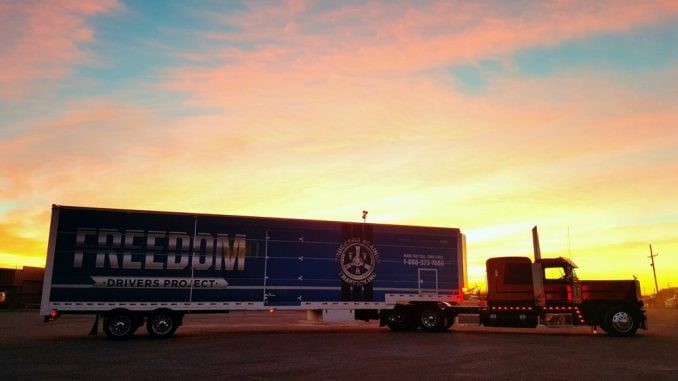
CHARLOTTE For most of his 20-year trucking career, Antoine Sadler figured if he saw something untoward at the truck stops, travel plazas and motels along his cross-country routes, the police would handle it.But three years ago, Sadler, who drives for Wal-Mart, took a special training course for truckers, which taught him how to identify potential victims of sex trafficking: SUVs full of young girls in revealing clothing or someone at a rest stop clearly under the control of someone else. He realized that as a trucker, he was in a position to intervene by asking someone clearly in distress if they needed help or by calling the police.”As drivers, we should be the front line,” said Sadler, 43, who lives in Charlotte and now educates other truckers about sex trafficking. “That’s the only way this epidemic will stop: if everyone’s watching.”Some states are starting to agree with Sadler’s conclusion. Ohio began requiring in July that commercial truck drivers be trained in how to spot telltale signs of sex trafficking and how to report it. Recently the Arkansas House approved a bill that would require training for truckers.N.C. is also considering strengthening penalties for human trafficking. In 2016 the N.C. General Assembly passed a law granting immunity from prosecution for any minor accused of engaging in prostitution and makes it a felony to solicit a minor for prostitution. The measure is to provide encouragement for teens and witnesses to come forward and report minors who are victims of human trafficking.Legislation is also moving forward in the N.C. General Assembly that would strengthen regulations on opioid distribution. According to trafficking experts, the exploding opioid addiction epidemic may be a contributing factor and drug treatment clinics may be yet another place where traffickers go in search of people to target.”Traffickers will literally line up outside clinics and try to lure women into this industry with promises of drugs,” Democratic Attorney General Maura Healey of Massachusetts told the Boston Herald this month.Human trafficking is a $32 billion per year industry. According to N.C. Attorney General Josh Stein, N.C. consistently ranks high in human trafficking due to our proximity to the coast, I-95 and I-85, an agrarian economy and high number of military installations and college campuses. Stein recently met with the N.C. Human Trafficking Commission and Truckers Against Trafficking when the organization brought its Freedom Driver’s Project to the state to encourage truckers to get involved.According to the National Human Trafficking Hotline there were 181 human trafficking cases reported in N.C. in 2016 and 2,700 cases over the last decade. The state ranks in the top ten in total number of cases reported.Getting truckers and other professions involved represents a new attempt by states to enlist the public’s help in combating sex trafficking where it’s likely to occur at highway truck and rest stops and in hotels and motels or in hospitals, where victims sometimes end up.”If hotel workers see a girl hidden in a room for days, or if they see the same girl being brought back four or five times a week, they look the other way,” said New York Assemblywoman Amy Paulin who introduced a bill this month that would require training for hotel workers. “But if they’re taught what to do, they can help those victims in a serious and positive way.”Involving people like truckers also makes sense to Kendis Paris, executive director of Truckers Against Trafficking, a nonprofit that works with states’ attorneys general to implement training programs for truckers.After all, she said, there are more truck drivers on the road than police.”There are 3 million truckers,” Paris said. “If we can empower and equip them to be a transient army for law enforcement, think how many victims could be identified, and how many perpetrators could be arrested.”States in recent years have enacted tough laws that target sex traffickers. Last year N.C. passed a law to dramatically lessening the penalties for minors involved in prostitution, in an effort to encourage more disclosure from witnesses.An estimated one in six runaways reported to the National Center for Missing and Exploited Children as missing were likely to be victims of sex trafficking. As reported numbers of cases of prostitution and sex slavery rise, indications are the nation’s Enlisting members of the public, especially truckers, as crime fighters is a next logical step in combating the trafficking, said Arkansas state Rep. Charlotte Douglas, a Republican who sponsored the trucker training bill in her state.”The more people we can train, the more eyes and ears are going to be out there,” Douglas said. “It’s not a burden to get this training. It’s an opportunity to save lives.”Stateline, an initiative of the Pew Trust Foundation, contributed to this article.




